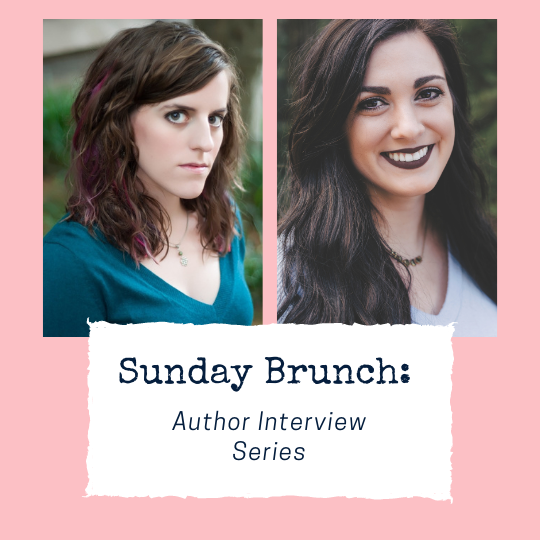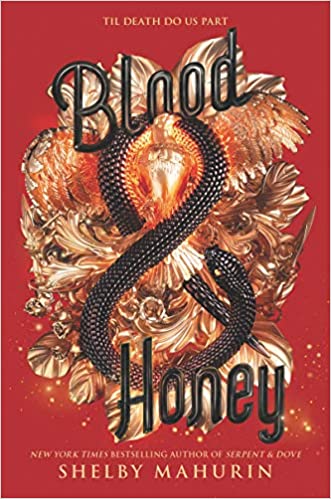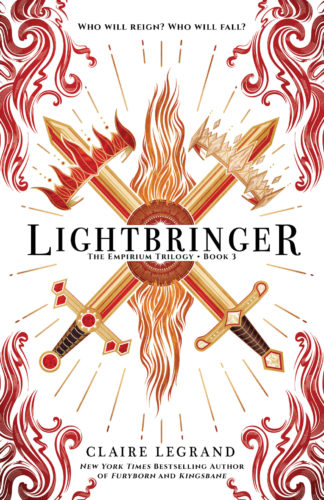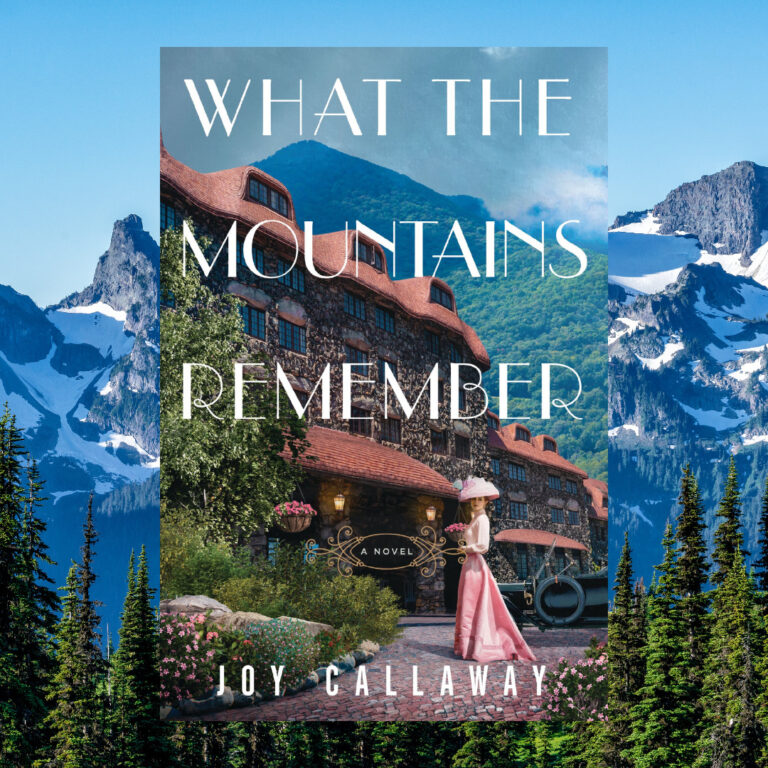[Note from Frolic: Our resident YA expert Aurora got the opportunity to interview Shelby Mahurin and Claire Legrand and ask them five(ish) questions. Up first, Shelby Mahurin!]
Aurora: What was your inspiration behind your most recent novel?
Shelby Mahurin: The heart of Blood & Honey came from the natural continuation of Serpent & Dove: what happens after opposites attract? We watch Lou and Reid fall in love in S&D, but that love is far from perfect. Each character comes from wildly different backgrounds with different worldviews and beliefs; conflict is inevitable. I knew going in that I didn’t want to hit the easy button here. I wanted to show how messy things can get between two people who want to make it work but just don’t know how. Throw in some external conflict—Morgane on a murderous rampage, no big deal—and emotions are running high all around.
What character in this novel do you most relate to and why?
I wouldn’t say I relate to any one character specifically. Both Lou and Reid—and Coco, Ansel, and Beau—have bits and pieces of my personality. I share Lou’s sense of humor and irreverence, Reid’s introversion and respect for rules/authority, Coco’s fierce loyalty (and maybe vanity), Ansel’s empathy, and Beau’s…huh. I don’t know what I share with Beau. 😂
Why do you feel novels with powerful and unique characters are so popular and have such a voice right now?
As a reader, characters—whether powerful and unique or inconsequential and mundane—are the most important aspect of any novel for me. If I love the characters, I’ll read about them doing whatever: shopping for groceries, paying their taxes, defeating the dark lord, etc. I can’t speak for others, but to me, characters are so important because they’re the living, beating heart of the story. Their voice, their charm, their wit—they’re what bring extraordinary and fantastical plots to life on the page, while simultaneously grounding them in reality.
Please describe the content of your latest read and what can readers expect from it.
I’m reading Midnight Sun right now, and it’s taking me straight back to thirteen-year-old Shelby’s Twilight mania. The nostalgia is real. (Definitely check out https://mthg.org to donate to the Quileute Tribe’s Move to Higher Ground campaign!) I have Ciannon Smart’s WITCHES STEEPED IN GOLD—the first in a Jamaican-inspired fantasy duology about enemy witches and magic and betrayal—waiting in my inbox too, and I’m beyond excited to start it.
What’s next for you in the bookish world?
Serpent & Dove 3! (I believe we’ll be announcing the title this fall.) After that, who knows? I have so many story ideas flitting around inside my brain, all clamoring for attention.
Who is your current favorite writer? Why?
Oooh, this is a hard one. I have so many favorites—Isabel Ibañez, Adrienne Young, Reneé Ahdieh, Adalyn Grace, Madeline Miller, Rena Barron, Naomi Novik, Sarah J Maas. I love any writer who can make me laugh, make me swoon, make me think, make me want adventure in the great wide somewhere. Beautiful prose is an added bonus.
Any writing advice for aspiring writers?
If you write, you’re a writer! But seriously, for me, the most helpful advice was that old and annoying adage—you’ve probably heard it—“dress for the job you want.” Other people might treat your writing as a hobby, but you know better. Prioritize it. You can’t publish a book unless you first write it.
Up next, Claire Legrand!
Aurora: What was your inspiration behind your most recent novel?
Lightbringer, my latest novel (out October 13), is the conclusion of the Empirium Trilogy, an epic fantasy series for young adults. The inspiration behind the series came from a daydream I had when I was 18 years old, a new high school graduate. I was listening to music and looking out the window of an airplane when I experienced a vision of a young woman surrounded by fire. She wasn’t afraid, though; she was quite clearly powerful, sad, and angry. Immediately fascinated by this daydream, I started asking myself questions about the woman I saw, whose name became Rielle.
As I explored and built her character, the story of the Empirium Trilogy grew around her—a character with great power whose rise and fall impacts her entire world for centuries afterward. I found that especially interesting as I worked on the story in those early years—the idea of a larger-than-life, unabashedly passionate, unapologetically ambitious, and sometimes bloodthirsty female character who isn’t always very nice (and isn’t always that sorry about it, either).
What character in this novel do you most relate to and why?
Even though I of course don’t possess the kind of power and importance Rielle and Eliana do, I relate very deeply to them as people of great inner conflict who are always struggling to fit inside their own skin and figure out their footing in an unkind world. I also relate strongly to Audric, a person of deep feeling and gentleness who makes a lot of mistakes but ultimately always tries to do the right thing. I think many readers will be able to relate with these three characters in similar ways, especially in Lightbringer, when each of them must reckon with these inner struggles as they never have before.
Why do you feel novels with powerful and unique characters are so popular and have such a voice right now?
I think novels with powerful and unique characters have always been popular with readers. We want to read stories about complex people who are messy and flawed and make mistakes, just like we do, and yet still have the ability to change the world for the better even so.
For me, characters like Rielle and Eliana are fascinating because they deal with a lot of the same problems I do—finding their voice, figuring out how to use their power, deciding what they want and who they love—but in the context of a fantastical setting and larger-than-life stakes.
I imagine most readers are seeking those moments of connection when they sit down with a new story. “This character is like me in a lot of ways. How would I react to that, if I were in their position? Would I make the same decision they did? What would I do differently? Or would I probably end up making that same mistake?” These are the kinds of questions I often ask myself when reading. Complex, compelling characters often serve as mirrors via which we can take closer looks at ourselves; the more complex the character, the more incisive and revealing the reflection.
Please describe the content of your latest read and what can readers expect from it.
The last book I finished reading was March, Book One by the late Congressman John Lewis and Andrew Aydin, illustrated by Nate Powell. I’m about to start reading Books Two and Three. March is a series of autobiographical graphic novels that tell the story of Lewis’s life, civil rights activism, and political career. Readers will love the vivid illustrations and the intimate, clear narrative voice, which makes the story accessible and immediate even to those readers who might not be as used to reading in this format. I highly recommend these books to anyone who wants to learn more about the late Congressman and his powerful legacy.
What’s next for you in the bookish world?
I have two books coming out next year. One is Thornlight, a fantasy novel for middle grade readers for fans of Diana Wynne Jones, Tahereh Mafi, and Miyazaki films. It’s a companion to my middle grade novel Foxheart, which releases in paperback on February 9, 2021. That means it takes place in the same world as Foxheart but focuses on a different group of characters. You don’t have to have read Foxheart first to enjoy Thornlight—though I do recommend it, simply because certain Foxheart characters show up in this new story. This is a very soft book (though it does have its moments of peril and darkness) about how courageous and heroic it is to have compassion, to be a gentle person even when the world around you is anything but that.
I also have another horror novel for young adults releasing next fall. I can’t share much about this one yet, but I will tell you that it features a cult, a garden, a strange forest, and four girls on a collision course with a terrible truth.
Who is your current favorite writer? Why?
My favorite writer has been my favorite writer for years now—Kristin Cashore. Her Graceling Realm books are my all-time favorite reads, and I can’t wait for the fourth book in that series, Winterkeep, to release this January. Cashore writes with such sensitivity, such an eye for subtle, unexpected beauty, and her characters feel gut-wrenchingly real, full of contradictions and passion and flaws and hopes. I also loved her standalone novel Jane, Unlimited, which is one of the strangest, most beautiful, most weirdly affecting books I’ve ever read.
I will never forget a particular moment during my reading of her novel Fire, the second Graceling Realm book. There is a certain scene of connection and revelation between a couple of characters that, when I read it, made me burst into tears. It was a quiet moment, nothing flashy, but that’s the thing about Cashore’s work—each book is a collection of subtle twists and turns, quiet examinations of character and relationships that build and build until your chest aches and you find yourself unexpectedly weeping in your car during your lunch break. Her books brim with love—love the characters have for each other, and love that you can sense Cashore feels for them and their world, and by extension, ours.
Any writing advice for aspiring writers?
Be patient with yourself and with the process. Writing is hard, and it’s messy. It’s a lifelong journey of learning and failing and trying again. If I could go back to my younger self, who was writing that first awful draft of Furyborn and aching with desperation to be published, I would tell her that: Be patient. Keep working. Keep learning. Keep touching base with yourself and reminding yourself why you wanted to write in the first place. That joy, that satisfaction, that sense of fun—hold onto it fiercely and use it as your guiding star when the going gets tough, as it inevitably will. And if you ever struggle to find that joy, take that as a sign that it’s time to reassess, to put aside what you’re working on and try something new. Take care of yourself—your mind, your body, your heart—and be patient with all the stops and starts. Your path may not look like anyone else’s. Well, fine. So what? Your path is unique. Your stories will be too.














